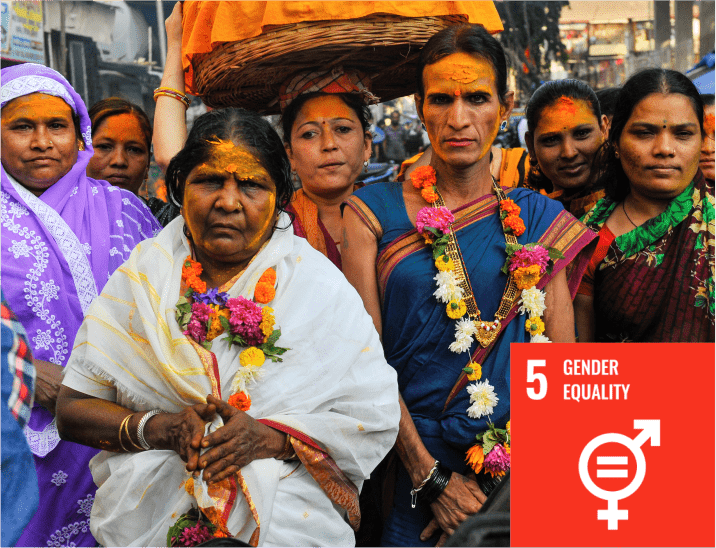SDG Goal 5 – Gender Equality

The vital role of women and the need for their full and equal participation and leadership in all areas of sustainable development was reaffirmed in the Future We Want as well as in the Open Working Group Proposal for Sustainable Development Goals. Open Working Group Proposal for Sustainable Development Goals.
Like others from their caste or social group, women from Communities Discriminated on Work and Descent (CDWD) experience forced and inhumane labour as well as segregation that denies them access to entitlements and access to justice.
Girls and women among the CDWD communities face extreme forms of violence by the wider society, paid unequal wages and are underpaid. There is a greater proportion of unpaid work among these women. Globally, there is a lack of clear policies towards gender rights specifically focussing on the girls and women from the CDWD groups.
The perpetuation of discrimination and the marginalisation of Dalits in India is intergenerational and Dalit women and children bear additional layers of disadvantages stemming from discrimination and violence. The children of a Dalit woman engaged in manual scavenging are more likely to inherit the same trade while they are still children. Overcoming the challenges of untouchability and the notion of pollution associated with Dalits among the remainder of their surroundings is central to the larger goal of leaving no one behind.
A large number of Dalit women in Sri Lanka’s tea and rubber plantations work without the protection of any specific policies or recognition of their particular vulnerabilities.
In Mauritania, Female Haratines or Black Moors or the country’s ‘slave caste’ face the threats of forced and/or early marriage, lack of control of fertility, sexual abuse or rape, and trafficking into sexual exploitation which increase the dangers of severe maternal health problems and HIV/AIDS.

